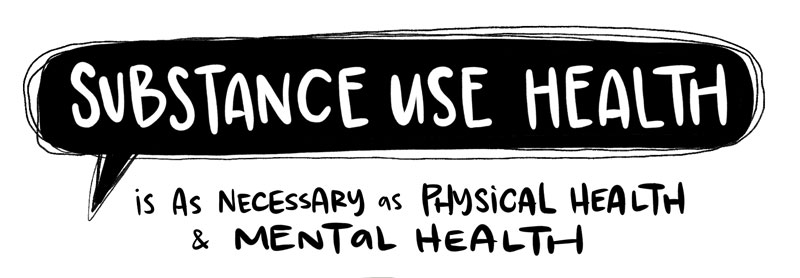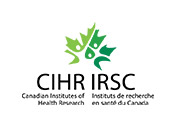
- Substance use health encompasses harm reduction in promoting health for all regardless of their substance use or the circumstances of their lives. Substance use health as an approach includes education, prevention, regulation, self-directed access to support and treatment as wanted, and working towards barrier-free access to health and social services.
- Substance use health as an approach aligns with social justice and equity-oriented approaches to social services and health care.
- Substance use health approaches use strengths-based and capacity building ways to support people who access services.
- Substance use health does not promote substance use; it acknowledges that substance use is a regular part of most adults’ everyday lives and practices and that substance use can be health promoting for some people.
- Substance use health does not require abstinence as a goal; supporting people’s goals related to substance use health is not limited to treating issues directly related to substance use. Health care providers need to coordinate with other services, such as gender-based violence support services and mental health care, treatment or counselling. Taking a substance use health approach includes advocating for a broader range of services than are currently available.
- The notion that people who access health services are ‘drug-seeking’ is a myth, with no evidence behind it; in fact, people often avoid care to protect themselves from stigma and related harms.
- Achieving substance use health is often impeded by policies and the way society is organized such as the strategic placement of liquor stores in specific neighborhoods, or the lack of availability of safe supplies, equipment or spaces to use.
- Health care providers and the public often discriminate against people who are assumed to use substances, contributing to unmet health needs and people’s mistrust in care provision; we must all check our biases, and consider how they may be impacting our capacity to provide quality care or services.
- Health care providers regularly overlook the knowledge and expertise of people who use substances; they know best what their health goals are and what support they want toward those goals, toward managing any health challenges associated with using substances, and in their daily lives.
- Healthcare and social service providers must respond respectfully to and address the priorities, concerns and goals of people who access services and advocate for policies and services that promote health.



